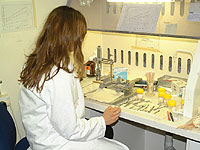Aviation (Flying) - 3980
Program Summary
Faculty: Faculty of Science
Contact: http://www.aviation.unsw.edu.au
Campus: Sydney
Career: Undergraduate
Typical UOC Per Semester: 24
Min UOC Per Semester: 3
Max UOC Per Semester: 27
Min UOC For Award: 144
UAC Code: 429500
Domestic Entry Requirements: See Domestic Entry Requirements
International Entry Requirements: See International Entry Requirements
Award(s):
Bachelor of Aviation (Major)
View program information for previous years
Program Description
The aim of this program is to prepare students for a career in the aviation industry, primarily as a pilot but also as a future manager/pilot. The program prepares the students for the role of professional pilot working either as a single pilot in a general aviation organisation, or as a multi-crew team in an airline. In addition, the student undertakes academic courses in aviation management (including safety) so that they may also take on the role of manager or the dual role of pilot/manager. The parallel program, the 3981 Bachelor of Aviation (Management) prepares students more specifically for careers in the managerial sector of the aviation industry.
Both streams consist of core courses selected from the Faculties offering the program, together with a range of options. The Flying stream additionally includes flight training to a minimum level of Commercial Pilots Licence (CPL), Command Instrument rating (Multi-Engine) and Air Transport Pilot Licence (ATPL) theory subjects.
Note: Due to the block training nature of the flight training program, teaching periods might not correspond to standard academic sessions, and students will need to undertake the Professional Pilot Program (flying training) on a full-time basis.
ENTRY SEMESTER
There are now two possibilities for entry: Semester 1 (March) and Semester 2 (July). Students should make early application prior to obtaining final high school results, to facilitate processing of their application by UNSW Admissions.
Program Objectives and Graduate Attributes
- be able to apply their knowledge and skills to collect, analyse and evaluate information;
- have a thorough understanding of this discipline as a stand-alone discipline and in its interdisciplinary context;
- be capable of applying their knowledge and training in a practical context (i.e. as a trained pilot);
- be capable of both independent and collaborative work;
- display skills relevant to teamwork and leadership;
- have developed effective oral and written communication skills;
- have a thorough understanding of ethical practice in the scientific context and in the aviation industry;
- have developed information and digital literacy.
Program Structure
|
Total of 144 UoC
|
Discipline Specific Core of 132 UoC
|
126 UoC of core courses in Aviation (Flying) (stages 1, 2 & 3)
|
|
6 UoC of Aviation (Flying) Electives
|
||
|
Breadth Component of 12 UOC
|
12 UoC General Education courses: these courses cannot be Science courses.
|
- AVEN1920 Intro Aircraft Eng (6 UOC)
- AVIA1321 Fundamentals of Aviation (6 UOC)
- AVIA1401 Introduction to Human Factors (6 UOC)
- AVIA1901 Airline Economics (6 UOC)
- MATH1031 Mathematics for Life Sciences (6 UOC)
- MATH1041 Stats for Life & Soc Sciences (6 UOC)
- PHYS1149 Physics 1A (Aviation) (6 UOC)
- PHYS1211 Energy and Environmental Phys (6 UOC)
- AVIA2013 Flight Operations 1 (18 UOC)
- AVIA2014 Flight Operations 2 (24 UOC)
- General Education (6 UOC)
- AVIA3014 Flight Operations 3 (24 UOC)
- AVIA3101 Airline Management (6 UOC)
- AVIA3401 Av Safety & Resource Mgmt (6 UOC)
- General Education (6 UOC)
Academic Rules
2. Students must follow the program of study as described in this Handbook, including core (compulsory) courses and electives as specified. The Program Authority, or nominee, must approve any variation to the program.
3. A maximum of 48 units of credit of level I courses can be taken throughout the entire program, excluding any GEN*#### or other mainstream level I courses taken to fulfil the 12 UoC General Education requirement.
4. Students must complete 12 units of credit of General Education. Students must follow the UNSW rules for general education. Any course defined as a 'science' course in Table 1, cannot be taken as general education. Any exceptions to these rules must be approved by the Program Authority or nominee.
| Aviation | AVIA |
| Biological Earth and Environmental Sciences | BIOS, BEES, CLIM, GEOS, IEST, MSCI, ENVS |
| Biotechnology and Biomolecular Sciences | BABS, BIOC, BIOT, MICR |
| Chemistry | CHEM |
| Computer Science | COMP |
| Food Science | FOOD |
| Materials Science and Engineering | MATS |
| Mathematics and Statistics | MATH |
| Medical Sciences | ANAT, NEUR, PATH, PHAR, PHSL, SOMS |
| Psychology | PSYC |
| Physics | PHYS |
| Optometry and Vision Science | OPTM, VISN |
| Science Faculty | SCIF, BSSM |
Honours
Students who are granted admission into Honours after completion of the requirements for the Bachelor of Aviation, will graduate from the Bachelor of Aviation at the end of the three years, and will then apply for entry to the Science Honours Program 4500, Stream AVIAAH.
Students may enrol in Honours on a part-time or full-time basis.
General Education Requirements
Academic Rules
Fees
Award with Distinction
Flying Costs
Faculty of Science Rules
Related Program(s)
3981 Aviation (Management)
Area(s) of Specialisation









